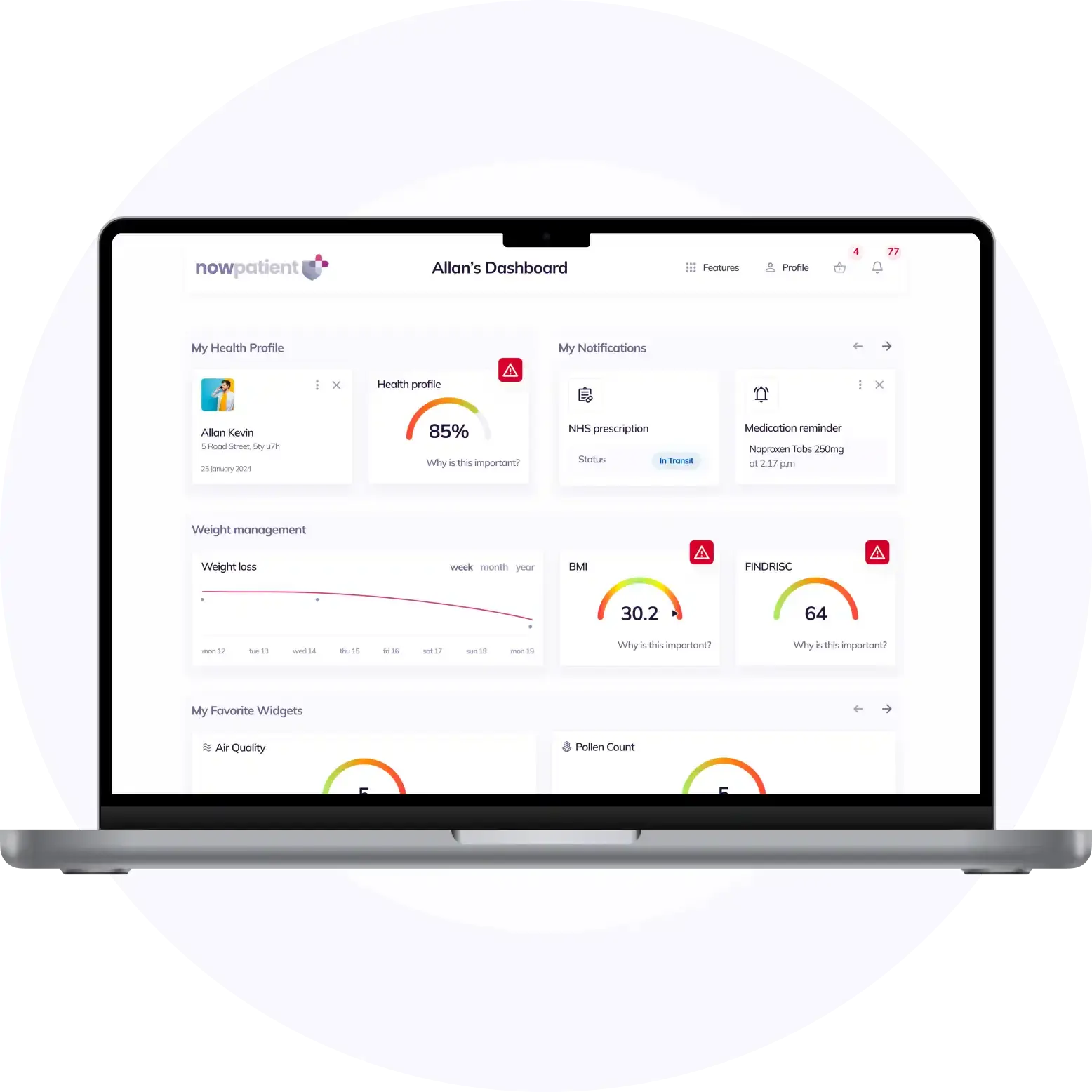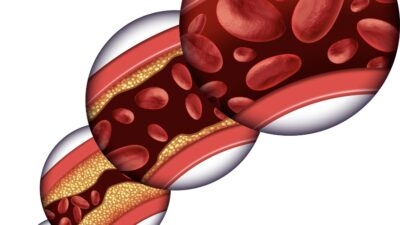Taking aspirin

Who should be taking aspirin and why?
This depends on your age, overall health, history of heart disease and risk of having a future heart attack or stroke.
Aspirin is used to treat pain and reduce fever or inflammation. Daily low-dose aspirin is an anticoagulant (blood-thinner) medicine. Aspirin is also known as acetylsalicylic acid. It is one of the most familiar and common medicines in the world. It is mainly given to prevent coronary heart attacks and strokes in people at high risk of them, if you have had heart surgery or if you have chest pain caused by heart disease (angina).
Aspirin is also an antiplatelet. Platelets are blood cells that ususally stick together and block cuts and breaks in blood vessels, so they’re important in normal health. In people at risk of heart attacks and stroke, platelets stick together inside already narrowed blood vessels (due to cholesterol and other substances deposited on artery walls) to form blood clots. Aspirin helps to prevent this.
Many people take it upon themselves to take aspirin once a day to prevent heart attack and cardiovascular disease risk factors. You should speak to your GP first to decide whether doing so is suitable for your medical needs and outweighs the potential risks.
What is the correct dose of aspirin?
Taken daily, aspirin can lower the risk of cardiovascular events, such as a heart attack or stroke, in people with a high risk. Taking a low dose of aspirin to prevent heart attacks and strokes is not the same as taking aspirin as a painkiller.
A GP will recommend the correct amount to take. A daily aspirin makes the blood less sticky and helps prevent heart attack and stroke risk. It’s usual to take a single dose of 75mg once a day. A regular strength tablet for pain relief is 300mg. A higher dose of up to 300mg once a day may be recommended, especially if you have just had a stroke, heart attack or heart bypass surgery.
Can I take Aspirin with other medication?
Tell your doctor if you’re taking these medicines before you start taking aspirin, these include:
- Blood thinners used to prevent blood clots, such as clopidogrel and warfarin (taking them with aspirin might cause bleeding problems)
- Medicines for pain and inflammation, such as ibuprofen and prednisolone
- Treatments for organ rejection after a transplant, such as a ciclosporin and tacrolimus
- Treatments for high blood pressure, such as furosemide and ramipril
- Digoxin, lithium, acetazolamide, methotrexate, insulin and gliclazide
For safety, speak to your pharmacist or doctor before taking any herbal remedies or alternative supplements with aspirin therapy. Aspirin may not mix well with complementary and herbal medicines and may increase your chances of side effects.
Does it matter if you do it yourself (OTC) rather than via your GP?
It can be a little confusing at times. Even the experts disagree. The American Heart Association recommends baby aspirin for “those at risk of heart attack and those who have survived a heart attack. However, the Food and Drug Administration (FDA) believes patients should only take aspirin if you have heart disease or a history of heart attack or stroke. The FDA states that taking aspirin creates a risk of bleeding that outweighs the benefits of taking aspirin for people who do not have a history of heart attack or stroke.
Aspirin is an over-the-counter medicine, but low-dose aspirin isn’t safe for everyone. We recommend only taking low-dose aspirin after speaking to a healthcare professional such as your doctor or a pharmacist to minimise your risks of aspirin. Tell your doctor if you:
- Have an allergy to aspirin or similar painkillers such as naproxen which are both classed as nonsteroidal anti-inflammatory drugs (NSAIDs)
- Have a stomach ulcer
- Have high blood pressure
- Suffer from indigestion
- Suffer from heavy periods
- Recently had a stroke
- Have asthma or lung disease
- Ever had a blood clotting problem
- Have liver or kidney problems
- Have gout
- Are pregnant or trying to get pregnant
- Are breastfeeding or planning to breastfeed
What are the side effects of Aspirin?
Aspirin can irritate your stomach lining and trigger gastrointestinal upset, ulcers and bleeding. Because it thins your blood it can be dangerous if you are at higher risk of bleeding.
People at increased risk of gastrointestinal bleeding complications should combine aspirin therapy with a prescribed proton pump inhibitor (PPI) such as omeprazole or lansoprazole.
Common side effects of aspirin include mild indigestion and bleeding more quickly than normal. Serious side effects are red, blistered and peeling skin, coughing up blood or blood in your urine, stools or vomit, a yellow colour to your skin and/or the whites of your eyes and pain or swelling in the hands and feet.
In rare cases, it’s possible to have a serious allergic reaction. In these cases, call 999 or go to A & E. Symptoms include a skin rash that may include itchy, red, swollen, blistered or peeling skin, wheezing, tightness in your chest or throat, trouble breathing or talking and swelling in your mouth, face, lips, tongue or throat.
For a complete list of side effects, see the information leaflet inside your medicines packet.
Sources
- More Information can be found on the NHS website on how Asprin is used for pain relief
Medical Disclaimer
NowPatient has taken all reasonable steps to ensure that all material is factually accurate, complete, and current. However, the knowledge and experience of a qualified healthcare professional should always be sought after instead of using the information in this page. Before taking any drug, you should always speak to your doctor or another qualified healthcare provider.
The information provided here about medications is subject to change and is not meant to include all uses, precautions, warnings, directions, drug interactions, allergic reactions, or negative effects. The absence of warnings or other information for a particular medication does not imply that the medication or medication combination is appropriate for all patients or for all possible purposes.
Related Articles
What is NowPatient
Telehealth and Online Pharmacy
NowPatient is a licensed online pharmacy and doctor service that is available around the world. Our service is FREE and packed with valuable features that can benefit your health such as medication reminders, educational blogs, medically approved symptoms checker, UK NHS online pharmacy, private treatment plans, Rx Advantage card, health conditions information, affordable medications options, genetic testing, home test kits, health risks, pollen meter, air quality monitor, weight loss plans, drug savings programs and lots more!

WHY WE BUILT NOWPATIENT
To improve the lives of everyone by making high-quality care accessible and convenient
We are here to improve lives. Our service gives you access to smart features and resources that can help empower you to take control of your health and improve your health outcomes. All this, in one place, for FREE. We strive to bring a fresh perspective to managing health. NowPatient can be accessed by downloading the App or using your web browser.
Download our app today

Can I trust NowPatient
Meet our medical team
We are a passionate group of clinicians and medical writers covering a broad range of specialities with experience operating in health systems in the United Kingdom & United States. Providing excellent care and advice is at the heart of everything we do. You can read more about our medical team by visiting the medical team page or learn more about how we curate content by visiting our editorial process


